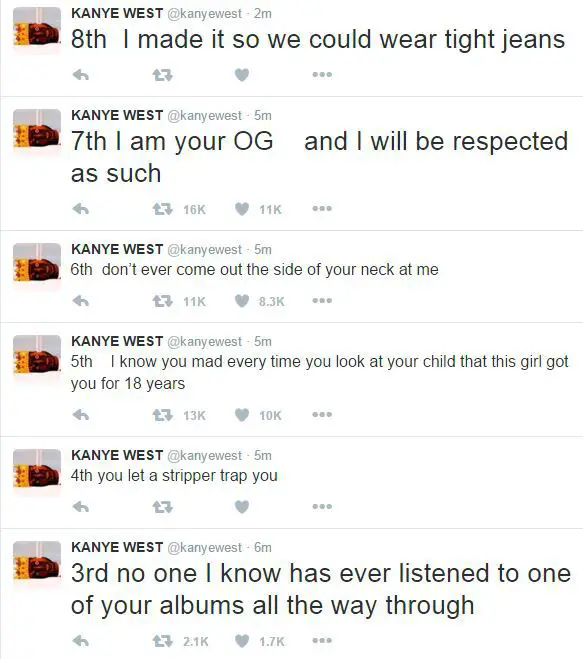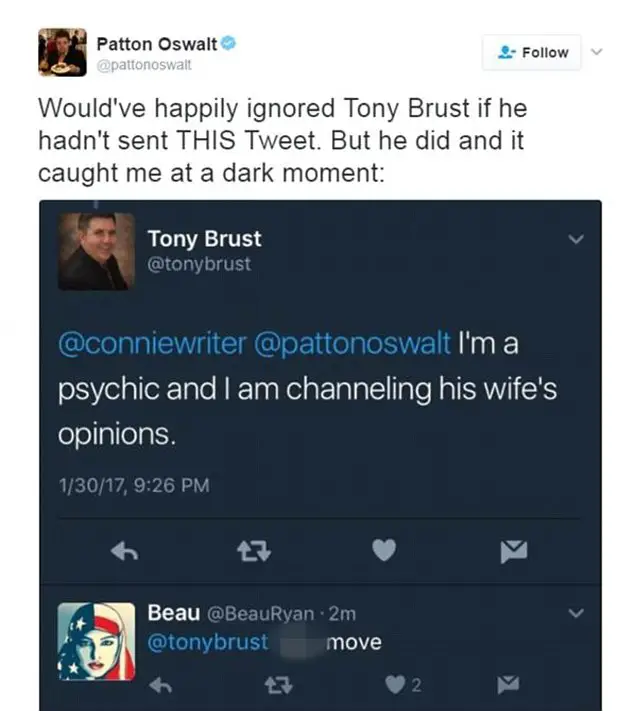Spilling tea, throwing shade and clapping back have all become popular monikers to describe the art of skillfully — and often, shadily — commenting on a situation.
Essentially, each of those phrases stem from the popularization of petty behavior. If Merriam-Webster defines pettiness as something “having little or no importance or significance,” then petty people are those who choose to go above and beyond in their response to negative social situations in an effort to embarrass or shame the other party.
Part of the reason why petty behavior has become so popular is because celebrity culture often practices a “safer” version of petty behavior. Famed celebrities can often drag one another in the limelight without facing serious repercussions for their mean-spirited behavior. And, as much as people like to deny it, celebrities do have an influence over people’s behaviors, leading pettiness into a spotlight.
Take, for example, one fairly notorious, high-profile example of a petty celebrity fight that has taken place over social media platforms, one of the most public avenues to air out dirty laundry: the 2016 Twitter feud between Wiz Khalifa and Kanye West.
The drama began when Kanye made the decision to change his album title from “Swish” to “Waves.” Khalifa tweeted out a series of statements about his dissatisfaction with the name change, but ended his ramblings with a statement referencing “KK” — Khalifa’s brand of weed.

“KK” are also the initials of Kim Kardashian, Kanye’s wife, to whom West thought Khalifa was referring. Kanye launched into his own rant about Khalifa, needlessly dragging the rapper for his previous relationship with Amber Rose, whom Kanye also dated, implying that Khalifa was foolish for “letting a stripper trap [Khalifa].” In her response, Rose brought up West’s sexual preferences in an effort to shame him, tweeting the now-famed hashtag #FingersInTheBootyAssB—.
The Khalifa-West-Rose exchange has thousands of retweets, favorites and comments, showing just how popularized petty drama has become in the world of popular culture. Drake even received a Grammy nomination for “Back to Back,” a song he wrote as part of a beef with Meek Mill.
The nature of social media can also lead to a culture of pettiness. It is now easier than ever to express thoughts on a person or subject, and social media has created entirely new forms of petty behavior to facilitate such interactions, subtweeting being a prime example.
For those unfamiliar, subtweeting is the act of posting (mainly on Twitter, but sometimes other avenues) a vague, cryptic statement about an issue with a person without directly naming the person. Subtweets can be especially shady because the object of the subtweet is not given an avenue to respond, even if they — and everyone else — know whom the post is about.
Although it may look enjoyable or sometimes even be enjoyable to shame or embarrass others, consistent petty behavior can actually lead to harsh consequences in both personal and interpersonal settings.
Petty revenge seeking has been shown to correlate with lower self-esteem, and those who frequently engage in petty behaviors have been shown to have a more negative outlook on life than others. So, on an individual level, engaging in petty behaviors, like passive aggression or revenge-seeking, can actually lead to issues with psychological health.
As for interpersonal relationships, petty behavior can also mess with friendships and romances, and even worsen already poor relationships. Subtweeting is a very common form of passive-aggressive petty behavior. This can have a negative impact on relationships, since no one wants to find out about an issue someone has with them via social media, especially since everyone else can see that there’s a problem behind the scenes. Subtweets can also worsen already poor relationships, as the lack of direct communication can lead to misinterpretations of a bad situation.
Sometimes, even, petty, mean-spirited attacks can get people into actual trouble. Tony Brust, a real-estate agent in Peoria, Illinois, lost his job after a tweet he sent to actor Patton Oswalt.
After Oswalt sent a tweet critical of Donald Trump’s decision to fire Attorney General Sally Yates, Brust called Oswalt a “little troll” and made a comment about “channeling [Oswalt’s] wife’s opinions.” Oswalt had lost his wife a few months prior to that exchange, an experience that he has said was a devastating to him and his daughter.
Within a day of posting that below-the-belt remark, Brust was fired from the real-estate agency he worked for. Although Brust might have only meant his comment as a joke, the implications of the tweet were far out of bounds, and Brust paid the price for a petty comeback.

Celebrities and social media can make petty behavior appear as a fun, easy way to get back at other people or to shame and embarrass others, but, in reality, such behavior is harmful to all parties involved. Deriving pleasure from the pain of others can be a sign of more deeply rooted issues, and social media is exacerbating the problem.
Although sometimes it is understandable to want to be cruel or to bring up something that embarrasses someone else, it is always better in the long run to try to take the high road and practice empathy toward others. Who knows, stepping back from being petty might just save something — your self-esteem, your friendships and maybe even your job.

















